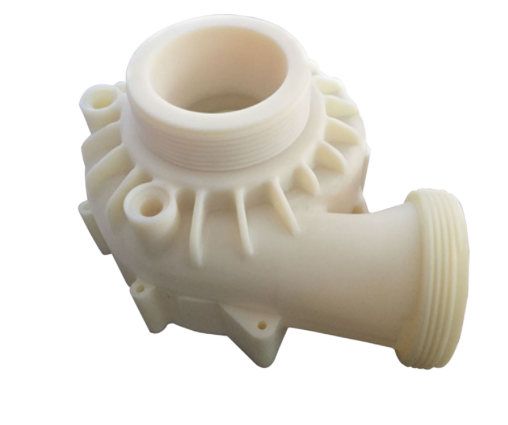CNC Milling Service
Custom CNC Milling Services
Our CNC Milling Service offers precision machining with a variety of materials, allowing for the creation of complex parts with tight tolerances. Whether for prototypes or production runs, we utilize advanced CNC milling technology to deliver high-quality, detailed components quickly and efficiently. With experienced machinists and the ability to work with both metals (such as aluminum and steel) and plastics (like ABS and acetal), we provide custom solutions tailored to your specific needs.
High Quality Rapid CNC Milling Service
Our High-Quality Rapid CNC Milling Service delivers fast, precise, and reliable machining for both prototypes and end-use parts. Utilizing advanced CNC technology and skilled machinists, we produce complex components with tight tolerances, as low as +/- 0.001”. We offer a wide range of materials, including metals like aluminum and steel, and plastics such as ABS and acetal, ensuring the right solution for your project. With quick turnaround times and exceptional attention to detail, our service is designed to meet the demands of fast-paced industries without compromising on quality.
Custom CNC Machining Materials
Materials Available at Avinyaworks
| Aluminum | Bronze/Brass | Copper | Plastics | Steel / Titanium / Zinc |
|---|---|---|---|---|
Aluminum 5052 | Brass C360 | EPT Copper C110 | ABS | Alloy Steel 4130, 4140 |
Aluminum 7075 & 7075-T6 | Brass 260 | Copper 101 | Acetal [Delrin] | ASTM A36 |
Aluminum 6063-T5 | C932 M07 Bearing Bronze | Acrylic | Stainless Steel 15-5, 17-4, 18-8, 303 | |
Aluminum 7050-T7451 | G-10 Garolite | Stainless Steel 303, 304, 316/316L | ||
Aluminum MIC-6 | Nylon 6/6 | Stainless Steel 416, 420 | ||
Aluminum 6061-T6 | PEEK | Steel, Low Carbon | ||
Aluminum 2024-T3 | Polycarbonate | Steel A36 | ||
PTFE [Teflon] | Titanium Grade 2, Titanium 6Al-4V, Zinc Sheet Alloy 500 | |||
Polypropylene | ||||
Ultra-High Molecular Weight Polyethylene |
Available Finishes
As-Milled
This finish option offers the quickest turnaround time. Parts will have visible tool marks and may feature sharp edges or burrs, which can be removed upon request. The surface finish is comparable to a 125 µin Ra finish.
Bead Blast
Anodized (Type II or Type III)
Type II anodizing creates a corrosion-resistant finish and is commonly used with aluminum. Parts can be anodized in various colors, with clear, black, red, and gold being the most popular options. Type III anodizing is thicker, providing both enhanced wear resistance and the corrosion protection offered by Type II.
Powder Coat
Powder coating involves spraying powdered paint onto a part, which is then baked in an oven to form a strong, durable layer. This process results in a wear- and corrosion-resistant finish that outperforms traditional painting methods. A wide range of colors is available to achieve the desired aesthetic.
Applications of CNC Milling
Advantages of CNC Milling
Precision and Accuracy
CNC milling offers exceptional precision, with tolerances as tight as +/- 0.001″, ensuring high-quality, accurate parts.
Versatility
Complex Geometries
CNC milling allows for the production of complex, intricate shapes and designs that are difficult or impossible to achieve with traditional machining methods.
Consistency and Reproducibility
Once programmed, CNC mills can produce consistent, identical parts in high volumes, ideal for both prototypes and production runs.
Cost-Effective
For both small and large production runs, CNC milling can be cost-effective due to low labor costs, fast setup times, and minimal material waste.
Surface Finish Options
CNC milling can achieve a range of surface finishes, from rough cuts to fine, smooth finishes, meeting various aesthetic and functional requirements.
Flexibility
CNC milling machines can be easily reprogrammed to accommodate design changes, offering flexibility for iterative design processes and custom projects.
CNC Milling Tolerances & Standards
| Description | General Tolerance or Standard |
|---|---|
|
Maximum Part Size |
Milled parts up to 80” x 48” x 24” (2,032 x 1,219 x 610 mm). |
|
Distance Dimensions |
For features of size (Length, width, height, diameter) and location (position, concentricity, symmetry) +/- 0.005”. |
|
Orientation and Form Dimensions |
0-12″ +/- 0.005″, Angularity 1/2 degree. For 24″ and beyond please consult us Manufacturing Standards. |
|
Precision Tolerances |
We can manufacture and inspect to tight tolerances, including sub +/- 0.001″ tolerances, per your drawing specifications and GD&T callouts. |
|
Minimum Feature Size |
0.020” (0.50 mm). This may vary depending on part geometry and chosen material. |
|
Threads and Tapped Holes |
We can accommodate any standard thread size. We can also machine custom threads; these will require a manual quote review. |
|
Surface Finish |
The standard finish is as-machined: 125 Ra or better. Additional finishing options can be specified when getting a quote. |
|
Edge Condition |
Sharp edges will be broken and deburred by default. Critical edges that must be left sharp should be noted and specified on a print. |
Overview: What is CNC Milling?
CNC (Computer Numerical Control) milling is a highly precise and automated machining process used to create parts and components from a variety of materials, such as metals, plastics, and composites. It involves using a computer-controlled machine tool to remove material from a workpiece through rotary cutters. The process is programmed via a CAD (Computer-Aided Design) file, which translates the design into a set of instructions that guide the milling machine in performing specific movements to shape the material.

Benefits Of CNC Mill Machining Processes
CNC milling machines are designed for high precision and repeatability, making them ideal for rapid prototyping as well as low-to-high volume production runs. CNC mills can handle a wide range of materials, from common ones like aluminum and plastics to more specialized materials such as titanium, making them versatile for nearly any job. Learn more about the differences between a milling machine and a lathe, and discover when CNC milling is the best process to use for your project.

Why Choose Avinyaworks For CNC Milling Service?
Endless Options
Choose from a vast array of material options, finishes, tolerances, markings, and certifications to customize your order to meet your exact specifications.
Easy to Use
Receive your parts delivered directly to your door, eliminating the hassle of sourcing, project management, logistics, and shipping.
High Quality
Receive high-quality parts delivered directly to your door, eliminating the hassle of sourcing.

